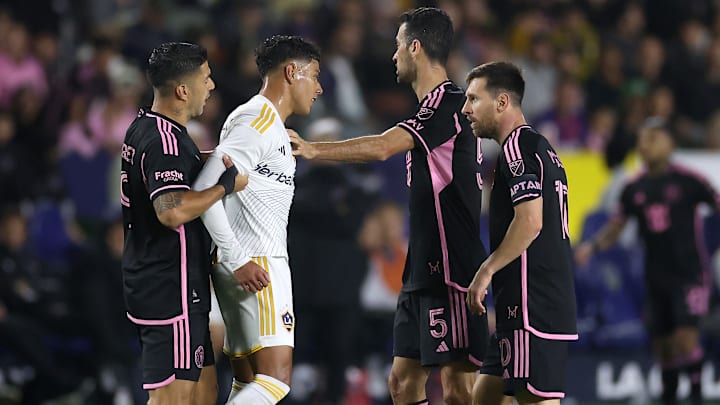The news that Lionel Messi, Sergio Busquets, and Luis Suárez did not travel with Inter Miami to Vancouver has sparked important discussions about the structure of Major League Soccer (MLS) and the management of international stars. While Jordi Alba, another soccer icon, is confirmed for the game, the absence of the three renowned players—especially Messi—has left many fans disappointed and ignited debates about the league's format and its demands.
First, it is essential to understand the context of the decision to rest these players. MLS has a dense schedule, and the trip to the West Coast represents a significant physical load. The choice not to bring Messi, Busquets, and Suárez seems to be a strategy for physical preservation, avoiding excessive wear and tear in an already grueling season. However, this decision goes beyond mere squad management; it directly impacts the fan experience and the perception of the championship.
Follow MLS Multiplex on X (Twitter).
Lionel Messi, since his arrival at Inter Miami, has been the league's main attraction. His presence not only elevates the technical level of the games but also draws a huge audience, increasing MLS's visibility and prestige internationally. Therefore, when Messi does not participate in a match, especially in important markets like the West Coast of the USA, the frustration of fans is understandable. For example, in the game in Vancouver, a crowd of 55,000 people was expected, eager to see the Argentine star in action. His absence represents a considerable disappointment for these fans, who bought tickets with the expectation of seeing one of the greatest players of all time.

This situation highlights a relevant structural issue: how MLS organizes its schedule and distributes the games. Unlike European leagues, where all teams play against each other, MLS has a regional configuration that does not always guarantee matchups between all teams during the regular season. This model, while efficient in logistical terms, can undermine the experience of fans who hope to see the big stars in action against all the league's teams.
Given this, the question arises: should MLS restructure its schedule to ensure all teams face each other in the regular season? Such a change could better balance the distribution of games, allowing stars like Messi to play in more markets, increasing the league's visibility and fan satisfaction. On the other hand, it is necessary to consider the impact of this change on logistics and the physical strain on players, especially in a country as vast as the United States.
Messi, Busquets, and Suárez are players who, in addition to their talent, bring significant marketing value and expectations. MLS needs to find a balance between maximizing the exposure of these players and preserving their physical condition so they can perform at a high level for longer. Their absence in certain games should be communicated transparently and planned to avoid unnecessary frustrations.
